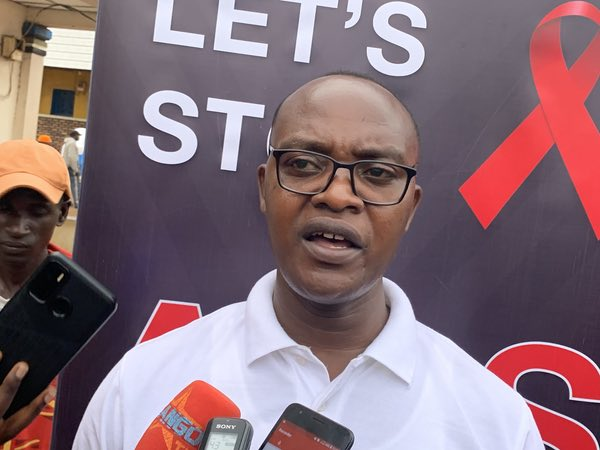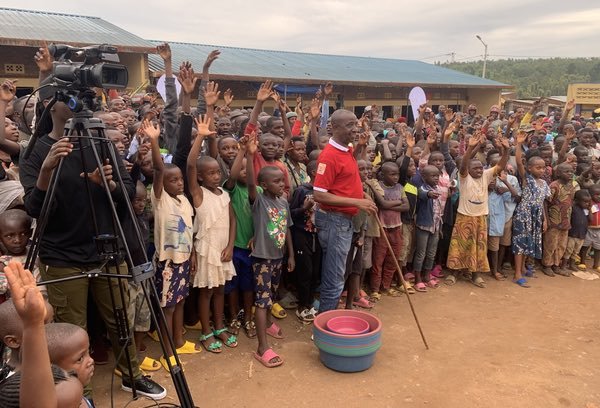[ad_1]

Rukomo, Nyagatare: The Rwanda Biomedical Center (RBC) has launched from Rukomo in Nyagatare district, central Rukomo, an awareness campaign for the population and young people in particular to strengthen the fight against new HIV infections. AIDS among young people, according to Aimé Ernest Nyirinkindi in charge of awareness raising and behavior change education at RBC.
“According to research published in 2019 in Rwanda, the Eastern Province reduced new HIV/AIDS infections by 66%, while in the other Provinces this reduction is 75%. This increase results from the fact that not all infected people take ARVs. Or also that people don’t get tested. Or that people who test positive do not take ARVs correctly. The observation is that the Eastern Province has not yet reduced the HIV virus in the blood. Another possibility is that young people do not have reliable information to protect themselves against HIV. This is why RBC has launched a campaign to disseminate safe information among young people, especially in school,” he said.
He made these remarks in the middle of the Rukomo market in front of an audience including young people who were following messages from a theater that mobilizes to fight against HIV.

Aimé Ernest Nyirinkindi in charge of awareness raising and behavior change education within RBC.
Nyilinkindi advocated safe sex, tests to detect the HIV virus in the event of a positive test, putting oneself on the ARV regime. He advised resorting to circumcision in health centers.
He announced that in Rukomo, RBC will open a youth corner which will provide HIV services to youth. “It is a solution to build a sector of Rukomo free from HIV/AIDS”, he reassured.
In the exchange with the population, it was noted that people who need condoms do not have where to buy them, and that under the influence of alcohol one is led to practice unprotected sexual relations.
Why launch a campaign against HIV/AIDS in Nyagatare?
Nyirinkindi says new HIV/AIDS infections are on the rise in Eastern Province and Kigali City Hall (MVK), especially among young people. The campaign will be carried out in three sites in Nyagatare, (Rukomo, Karangazi and Rwimiyaga). It will continue in two sites (Kabarore and Kiramuruzi of Gatsibo). Then in two other sites of Kayonza (Rwinkwavu and Kabarondo).
Then in sites of Rwamagana, Ngoma and Kirehe, Bugesera and Kigali. This first phase will expand across the country, identifying locations that provide HIV/AIDS services.
“The 2019 study showed that HIV/AIDS strategies have achieved their goals. The country has stabilized infections at 3%. People between the ages of 15 and 49 are infected at 2.6%. People between the ages of 15 and 64 are infected at 3%. This represents 227,000 people infected in the country who are on ARVs. A step has been taken by reducing the transmission of infections from mother to child from 11% in 2011 to 2% currently. Another important step is that in 2013, there were 27 infections per ten thousand people, or 0.27% of new infections per year. i.e. eight people out of ten thousand. In 2019, the study demonstrated that new infections declined from 0.27% in 2013 to 0.08% in 2019. This confirms a big step,” Nyilinkindi revealed.
A big step has also been taken by reducing the transmission of infections from mother to child from 11% to 2% currently. Only one particular problem persists. There are new infections among 16-year-olds. In young girls between the ages of 25 and 29, infections are three times higher than in boys of the same age.
“Rwanda has all the services to fight HIV/AIDS. These services are free. Mobilizing young people to use these services is a solution to awaken young people to protect themselves and to counter HIV/AIDS”, added the person in charge of behavior change within RBC. (END)
Related
[ad_2]
Source link



